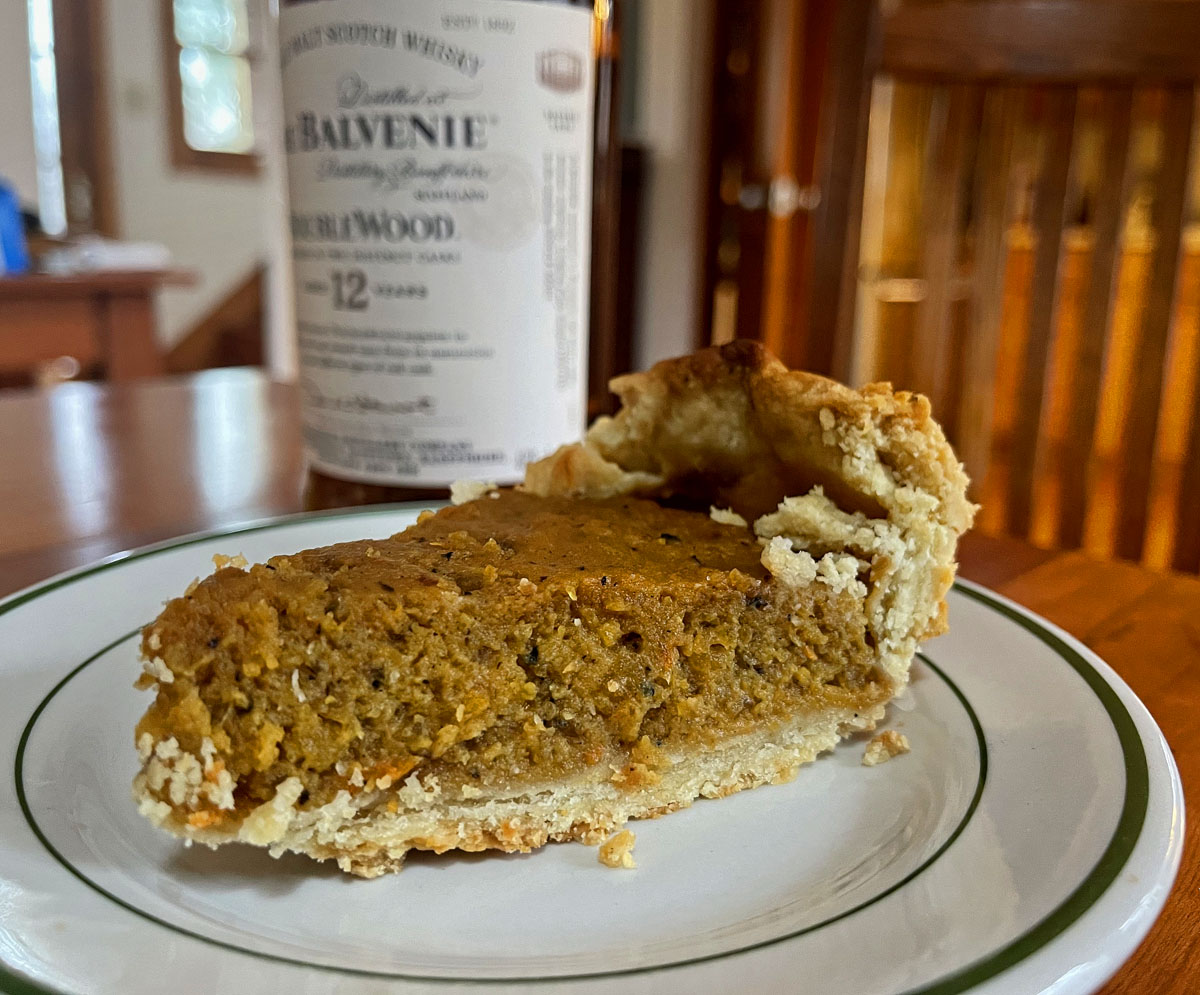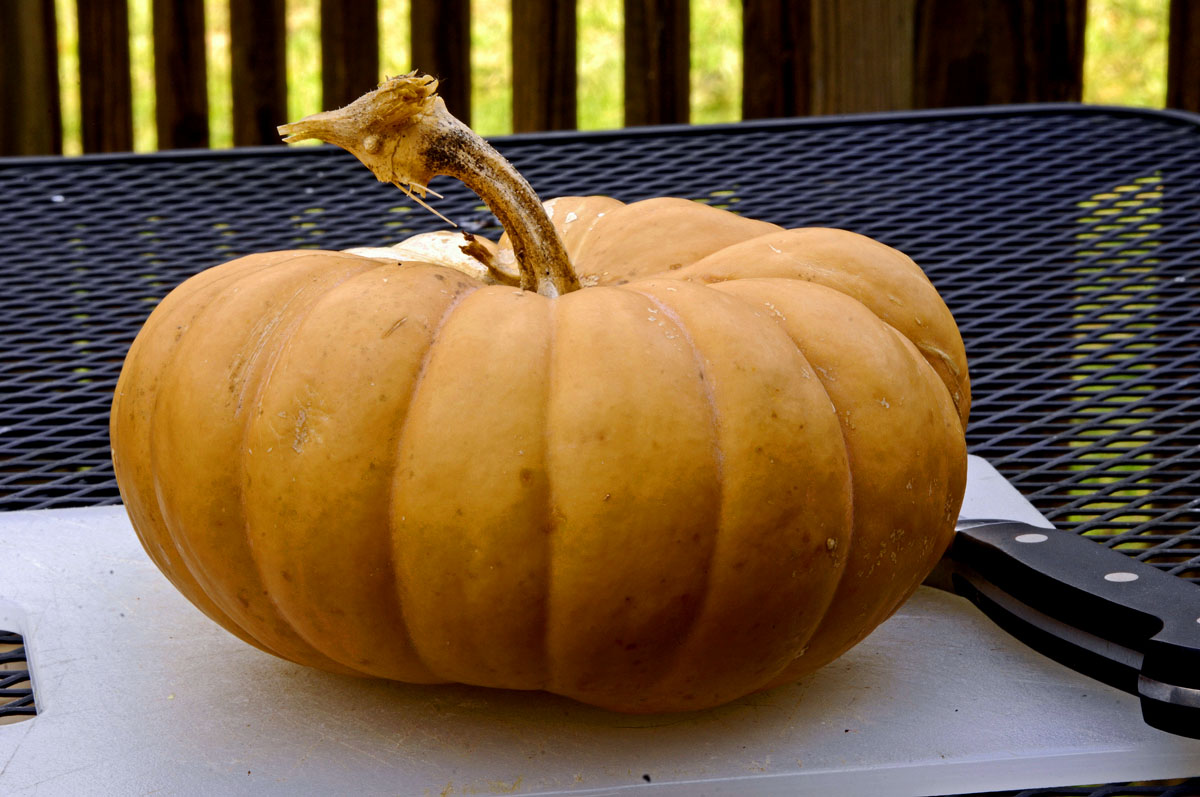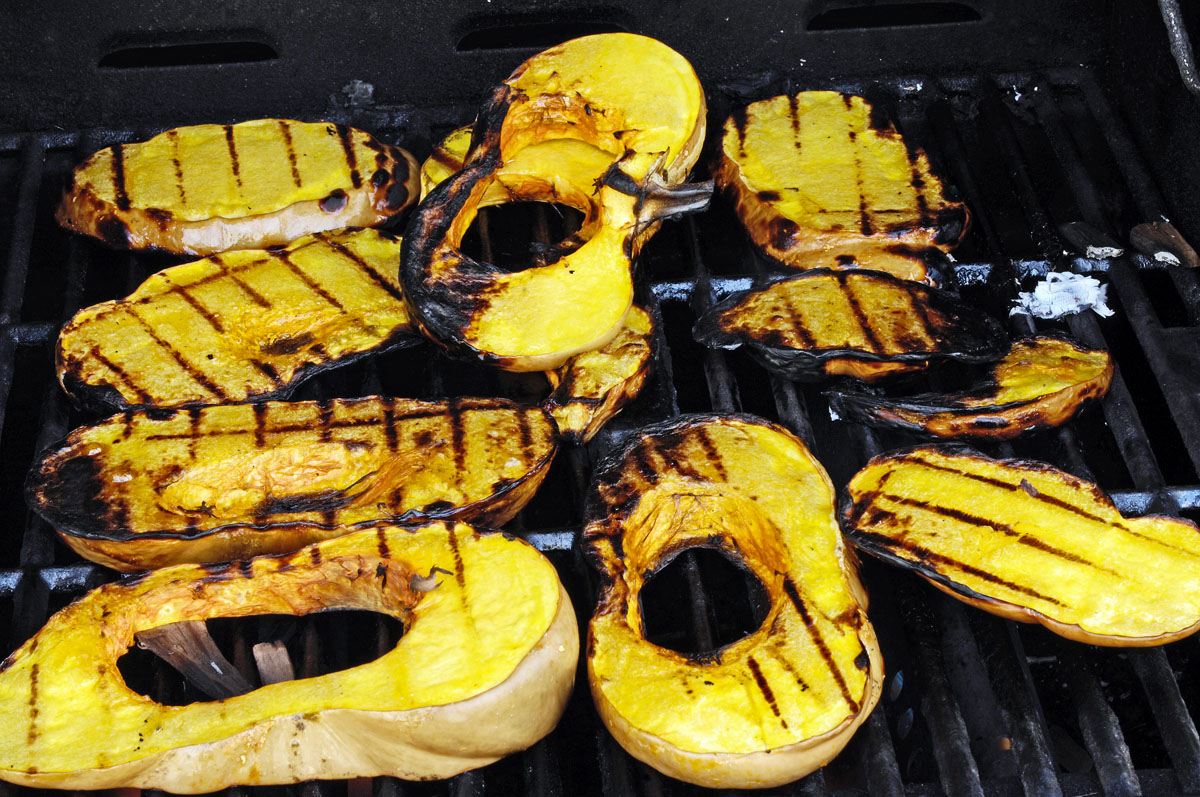
Pie from roasted pumpkin, baked in an iron skillet with fire and smoke
Since it was the week before Christmas, I splurged on a Scotch that cost twice as much as what I usually pay. When I first tasted it, I was a bit shocked at how smoky the Scotch was. I usually prefer a less smoky Scotch. But by the third time I got into it (in three evenings, I confess), I found that I liked it, and the smoky flavor no longer seemed to dominate the other tastes of Scotch.
I am by no means a connoisseur of Scotch, though no doubt I’m more experienced with Scotch than most Americans. Having toured the distillery at Oban, I knew about how barley is malted and dried before fermentation. But, after tasting The Balvenie Scotch, I Googled to try to better understand why some Scotches are much smokier than others. I came across this article at Whisky Advocate — Science Can Explain Why You Like Smoky Whisky—Or Not. The article includes this interesting statement:
“… [U]ntil relatively recently in our ancestral timeline—within the last 200 years—all cooked food would have tasted of smoke.”
That got my attention, because it certainly seems to be true. It follows that, particularly for those of us who are interested in what antique cookery — even Iron Age cookery — might have been like, smoke is something that must be kept in mind.
As I looked around the kitchen for a bold experiment with smoke, I settled on one of my little pumpkins. The usual name for the little pumpkins is “Long Island cheese squash.” You can buy seeds from heirloom seed companies such as Baker Creek. A friend gave me my seeds, though, and I have been growing little pumpkins for about five years now, with seeds that I save over to the next year. My first thought was to make pumpkin soup, and I will, later. But I quickly changed my mind to pumpkin pie, because it’s almost Christmas.
One of my dreams is to have an outdoor range and oven, built of brick and fired with wood. For now the best I can do is to use my propane grill, which is on the deck and convenient to the kitchen. I threw in little chips of apple wood to create smoke. (Note to the abbey groundskeeping department: when fruit trees have to be trimmed or cut, save the wood for making smoke.)
One might suppose that a pumpkin pie with so much exposure to smoke and so much brown roastedness might taste like ashes. But that wasn’t true at all. The pumpkin flavor remained dominant, followed by cinnamon (of which I used only half a teaspoon), followed by smoke. It turned out to be an excellent pie, with the smoke acting as a kind of umami. It was no surprise that the pie went well with Scotch.
I hesitate to confess this because it makes me sound like an American bumpkin, but peat smoke to me smells a lot like coal smoke. (In fact, peat would turn into lignite coal if left in the ground.) I’d probably be able to tell the difference in a smoke-smelling test. But the connotations of peat and coal are worlds apart. One speaks of moor and bog, rock and gull, wind, and sea, and water. The other speaks of industry, trains, mines and black dust. I suppose I need to retrain my nose. Lacking access to either peat smoke or coal smoke here in the Appalachian woodlands, I will be obliged to turn to Scotch to train my nose for the scent of peat smoke.
Here in the Appalachian woodlands, we do not lack for smoke. We have many smoke flavors to choose from. If my dream of an outdoor range and oven ever comes true, then I think there ought to be a special woodpile just for flavor — hickory, persimmon, apple, pear, pecan. Even pine might have its uses.



Great looking food. Pie good choice at Christmas. Soup will be good when winter really sets in. Merry Christmas and Happy New year. Have enjoyed your posts so much.
Merry Christmas!
Yum!